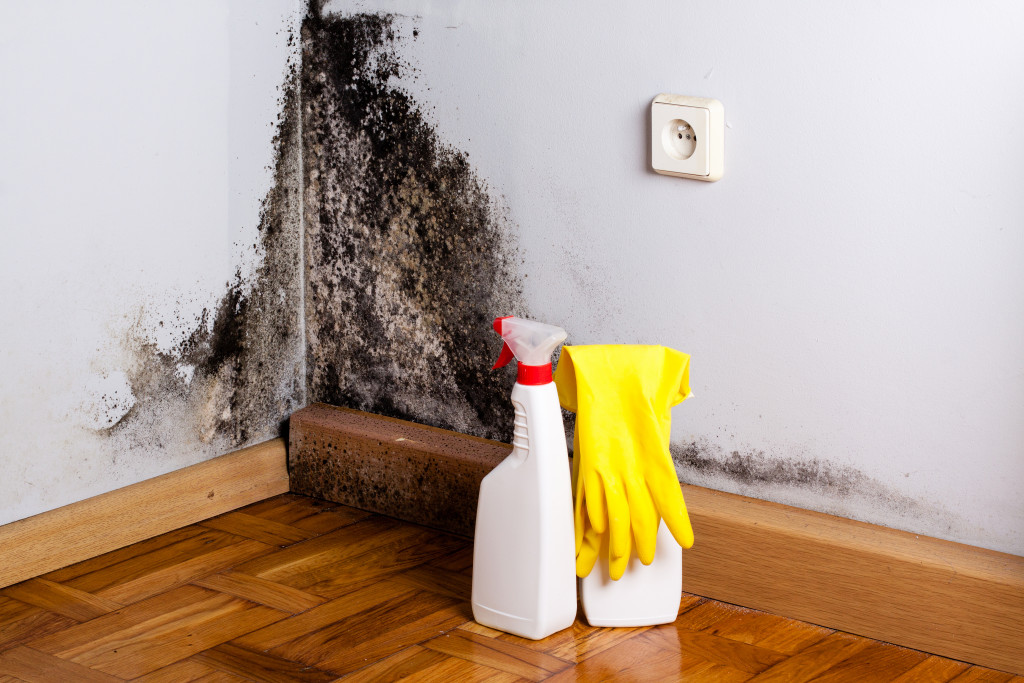- Asthma, a chronic respiratory disorder, is often triggered by indoor allergens and poor indoor air quality.
- Smoking, stress, and lack of proper asthma management can exacerbate symptoms and cause attacks at home.
- Regular care of trees can help reduce outdoor allergens like pollen that can trigger asthma symptoms.
- Regular cleaning, using a HEPA filter vacuum, and closing windows can reduce indoor allergens.
- Adherence to an asthma action plan devised by a doctor is crucial for effective symptom management.
Asthma is a chronic respiratory disease that causes inflammation and airways narrowing, leading to difficulty breathing. The World Health Organization reports that asthma affects over 300 million people worldwide, and the number is increasing every year. You might notice more asthma attacks at home than anywhere else if you have asthma. Here’s what you need to know about asthma, why you have it, and how to deal with it.
What is Asthma?
Asthma is an inflammatory disorder of the airways that can cause wheezing, coughing, chest tightness, and other breathing difficulties. A combination of environmental factors and genetics causes it. Asthma can be triggered by allergens such as pollen or animal dander, cold air, exercise, stress, smoke exposure, and strong odors or irritants in the home.

1. Indoor Triggers
Indoor triggers are the primary reason why you might have asthma attacks at home. These include dust mites, pet dander, mold, and pollen. If your home has poor ventilation, these allergens can accumulate, triggering an asthma attack. You could also be exposed to indoor air pollutants like tobacco smoke, household cleaners, and solvents, which can aggravate your asthma symptoms.
2. Poor Indoor Air Quality
The air quality in your home can affect your asthma symptoms. Household products, such as cleaning chemicals and fragrances, can release volatile organic compounds (VOCs) that irritate your airways, leading to asthma attacks. Poor ventilation in your home can also cause humidity, which can trigger mold growth, adding another potential asthma trigger to your home.
3. Smoking
Smoking or breathing in secondhand smoke can trigger asthma attacks and cause respiratory problems. When you smoke, you release chemicals and irritants into your environment that can exacerbate your asthma symptoms. If you have asthma, avoiding smoking or exposure to secondhand smoke is important.
4. Stress
Stress can trigger asthma attacks, and being at home can sometimes lead to heightened stress levels. Stress can cause your body to produce hormones that trigger your asthma symptoms, especially if you have trouble managing stress. Finding ways to reduce stress levels at home, such as finding time to relax, practicing mindfulness, or engaging in physical activity, is essential.
5. Lack of Asthma Management
If you have asthma, it is crucial to manage your condition correctly. If you do not take your prescribed medication as directed or avoid triggers, you may experience more frequent asthma attacks. Keeping track of your symptoms and adhering to your treatment plan is vital to managing your asthma and reducing the likelihood of attacks at home.
Ways to Deal With Asthma
There are various ways you can deal with asthma. Here are four of those ways:
Check Your Trees
One of the most overlooked asthma triggers is trees. Trees produce pollen and other allergens that can irritate your airways. If you have asthma, checking your trees regularly for signs of potential allergen production is important. You can hire a local tree care service for this. They can inspect and prune your trees so that allergens are under control.

Clean Regularly
Make sure to clean regularly, especially if you have pets. Dust mites and pet dander can be airborne particles that trigger asthma attacks. Vacuuming with a HEPA filter vacuum cleaner can reduce their numbers significantly. Make sure to dust and mop with a damp cloth to reduce the amount of allergens in your home.
Keep Windows and Doors Closed
Keep windows and doors closed during pollen season or when strong odors outside could trigger an asthma attack. Pollen and other allergens can quickly enter your home through open windows and doors. Keeping them closed can prevent these allergens from entering your home.
Follow Your Asthma Action Plan
Finally, follow your asthma action plan if you have one. This is a plan devised by your doctor that outlines the steps you need to take when experiencing symptoms of an asthma attack. It includes taking medications at specific doses and times and other tips for symptom management. Following your action plan can help you reduce the occurrence of asthma attacks at home.
Managing asthma requires an active approach and awareness of the potential triggers in your environment, particularly in your home. By identifying and mitigating indoor triggers and following an asthma action plan, you can significantly reduce the frequency and severity of asthma attacks. Regular home cleaning, proper ventilation, and diligent attention to potential allergen sources like trees are also essential. Remember, consistent asthma management is the key to leading a healthy, active lifestyle despite the condition.







